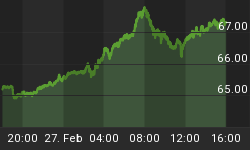AR – a technology often closely associated with virtual reality (VR) and artificial intelligence (AI) – integrates digital information into a real-time, physical environment.
Unlike VR, which involves total immersion in a digital environment, AR typically takes the form of images or graphics superimposed on reality via a digital device such as a smartphone. In popular culture, an emblematic use of AR is the Pokémon Go mobile game.
AR can be applied in a wide range of sectors, including health care, education and commerce. In health care, AR has various uses in surgery, as well as in training and drug development. In education, AR can create immersive learning environments for students, helping them access and visualise information.
Meanwhile, in a commercial context, AR has been used in a range of innovative ways. The home furnishings giant Ikea was an early adopter: its Ikea Place app allows customers to superimpose catalogue items on their domestic environment, thereby helping them to make informed purchase decisions without the need to travel to a brick-and-mortar store.
In light of the turn towards remote and digital solutions resulting from the Covid-19 pandemic, continued growth in AR is expected.
According to a report released in September by technology research company Technavio, the global AR and VR market is set to grow by more than $125bn during the 2020-24 period, with a compound annual growth rate of over 35%.
AR growth in Indonesia
Indonesia is seeing considerable expansion in the use of AR.
Prior to the pandemic, Indonesia was already home to a number of start-ups in the field.
In the education space, these included ARKids Studio, which was founded in 2019 and offers AR solutions for pre-school and elementary-age children, and JENIUSVR, which was founded the year earlier and provides educational content in a virtual classroom, as well as AR training for teachers.
In terms of e-commerce and marketing, DAV Global produces a customisable AI and AR device, which is mounted to shelves in brick-and-mortar stores and interacts with customers, thereby improving engagement. SnapCard, meanwhile, enables users to create AR business cards and brochures.
Jakarta-based SmartEye, founded in 2011, is an established presence that provides AR and VR solutions for business, while the award-winning Octagon Studio, founded in 2015, covers both the education and entertainment spheres.
Alongside a healthy start-up ecosystem, some of the region’s more established players are also based in Indonesia, among them the WIR Group, which was founded in Jakarta in 2009 and specialises in AR, VR and AI.
In light of this, Indonesia’s AR market was well placed to respond to the new context created by Covid-19.
“The difficult conditions in the Indonesian market, together with the onset of the pandemic, have required increasing levels of creativity from the Indonesian IT sector, which has managed to effectively satisfy the thirst for digitisation felt by various companies in different industries during the current crisis,” Daniel Surya, executive chairman and co-founder of WIR Group, told OBG.
“In particular, the creation of large data platforms for the implementation of AR, VR and AI technologies has proven to be a constantly expanding segment.”
Indeed, AR and VR are becoming increasingly common elements of daily life in Indonesia.
One example of this is Modular, a recently launched app that offers an innovative way to listen to live concerts remotely. The app places a virtual stage inside users’ homes, on which virtual representations of real-life musicians are displayed. Users can move their camera around the 3D digital object, creating an interactive, immersive audiovisual experience.
Regional leader in the digital space
The rapid development of AR in Indonesia must be placed in the context of its burgeoning digital economy.
The country is home to the highest number of so-called unicorns – start-ups valued in excess of $1bn – among all 10 ASEAN members.
A 2019 report by Google, Temasek and Bain projected that Indonesia’s digital economy, which at the time was already the largest and fastest-growing in the region, would expand from a value of $40bn in 2019 to $130bn by 2025.
As OBG anticipated in March, the Indonesian educational and medical technology spaces have played a key role in combatting Covid-19. Likewise, the e-commerce sector has grown considerably during the pandemic; and the country is home to Gojek, one of the region's largest ‘super apps’ offering integrated services in transport, delivery and payments.
In addition, the administration of President Joko Widodo, better known as President Jokowi, is prioritising digitalisation as a means to stimulate the economic recovery from Covid-19, as detailed in OBG’s annual 2020 report on Indonesia – with AI and AR to play a role in this. Related: Election Proofing Your Energy Portfolio
Indeed, the government published a national AI strategy in August that aims to guide the development of this segment through to 2045.
“The government’s increasing attention to the AR, VR and AI markets must also be added to the current positive panorama. As has been the case in the past, for example with regard to e-commerce, the Indonesian government is examining these segments to produce regulations that are as favourable as possible to healthy market development,” Surya told OBG.
Indonesia’s position as a key reference point in the global AR and VR panorama was confirmed by the choice of Jakarta as a venue for the third International Conference on Virtual Reality Technology, to be held in December this year.
In short, it seems certain that the sector will continue to grow in the country in the coming months and years, offering a range of opportunities to investors.
By Oxford Business Group
More Top Reads From Safehaven.com:
















